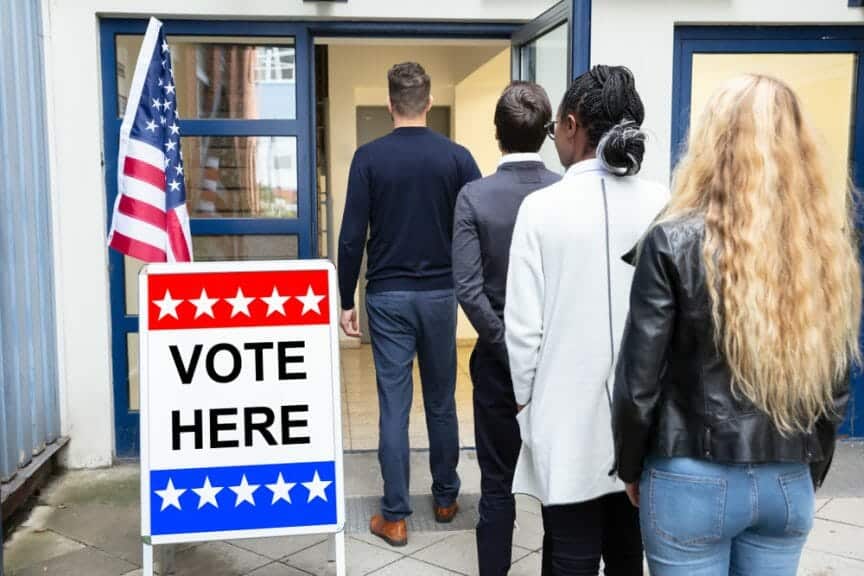Older generations always label the youth as idle. Millennials got the lazy snowflake label from Generation X. Before them, Generation X got the ‘slacker’ label from Boomers. This assumption, though false in some ways, does ring true for voting; young people are far less likely to vote. With many amongst Gen Z reaching the voting age, are we likely to see this cycle repeat?
Voting trends indicate that the 18-24 age group historically votes less than older groups. This could be due to a number of factors, but as a generally outspoken and socially aware generation, Gen Z may become an anomaly.
Youth Voting Patterns
Less than half of 18-29-year-olds voted in the 2016 U.S Presidential Election and the youth have been significantly underrepresented in polls since 2003. The cliche that “young people do not care about politics” may seem plausible here. However, the reasons for low turnout have little to do with apathy. There are practical reasons, such as lack of political education and opportunity to find views that resonate, or limitations imposed by location and time. Another could be that many are disillusioned with the system. The youth may be more pessimistic and anti-establishment than older generations.
However, Gen Z’s anti-establishment sentiment may instead manifest in the form of ardent activism and political involvement. This political apathy may be a thing of the past, with the importance of making a material influence on society taking priority over inactive nihilism. As they grow older, they will gain more political knowledge and therefore more power to collectively influence society through voting and organizing.
The Socially Conscious Generation
Gen Z’s values are different from older generations, having grown up incredibly aware of social injustice. The influence of social media in making political education more accessible also plays a prominent part. Infographics are commonly utilized formats in raising awareness of sociopolitical issues, so learning about complex issues seems more manageable. Witnessing police brutality coverage on the news with alarming frequency, along with an attack on abortion rights, stirs enough outrage amongst our youth to inspire action. The desire to have their voices heard is of utmost importance. After seeing the damage inflicted by older generations’ voting choices, the option of using this to influence decisions that directly impact them seems logical.
The role of activism and protests may further contribute to voting patterns. Discussions occurring during protests concern issues at the forefront of the political landscape, offering motivation to vote. Causes like Black Lives Matter and climate change protests attract a huge Gen Z turnout. Whilst older generations made arguably more monumental changes through protesting (the Civil Rights and Feminist Movements of the 60s are not to be downplayed), the way these spaces are used is rather different. Young people who organize demonstrations can do so with more ease and therefore have a potentially international reach due to the internet.

The Future of Voting
Even right-leaning members of Gen Z may be more likely to vote for similar reasons. Wanting to have your voice heard is far from limited to the left of the political spectrum. For instance, pro-life and pro-gun groups recognize the influence of policy on both issues. Right-wing social media continually emphasizes the importance of voting and organizing protests. Voting is one of the most important tools for change regardless of political alignment. Instead of hopelessly moping about, voting can influence or improve real-life circumstances for many, so representing a multitude of opinions is necessary.
The ease of expressing opinions on social media and peer encouragement to vote could culminate in increased political engagement. Gen Z’s outspokenness and lack of passivity are likely to translate into increased rates of voting. They could potentially break the pattern of low youth turnout as a result.














